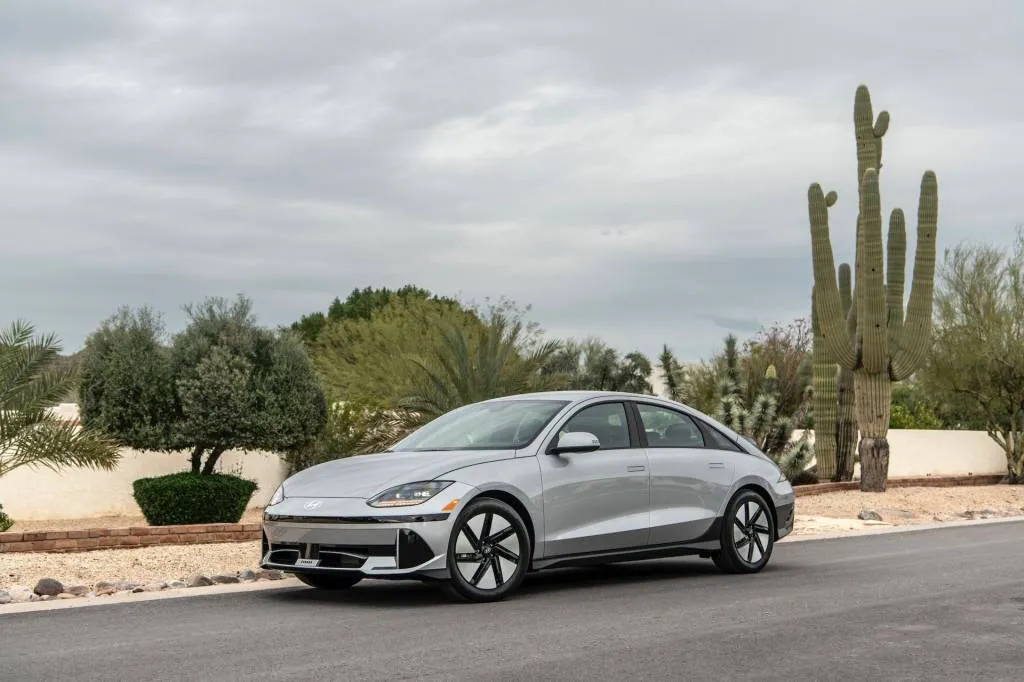- 145,235 Hyundai and Genesis EVs have been recalled
- The recall stems from a potential issue with the onboard charger
- The issue results in a potential loss in drive power
Hyundai is recalling 145,235 electric vehicles from its main brand and Genesis luxury brand because of a potential issue with onboard chargers that could cause vehicles to enter a fail-safe driving mode with reduced power.
The recall includes 2022-2024 Hyundai Ioniq 5, 2023-2025 Hyundai Ioniq 6, and 2023-2025 Genesis GV60 models. Those three are based on the same E-GMP dedicated EV platform. Other vehicles in the recall population, including 2023-2025 Genesis Electrified GV70 SUVs and 2023-2024 Genesis Electrified G80 sedans, are electric variants of internal-combustion models.
Integrated charging control units in the affected vehicles may become damaged by certain electrical loads, preventing them from charging the vehicles’ 12-volt batteries, according to the National Highway Traffic Safety Administration (NHTSA). This triggers the fail-safe mode, which initially allows full power but gradually decreases available power over time.
2024 Genesis GV60
Drivers will see warnings on the dashboard and hear audible chimes if this fault occurs, the NHTSA said, adding that other vehicle functions such as steering and brake assist, as well as airbags, will remain functional.
The remedy involves updating the charging control unit’s software, as well as inspection of the unit and its fuse, with replacement as needed. All of this will be done free of charge by Hyundai and Genesis dealers.
Hyundai plans to mail owner notification letters Jan. 17, 2025. Owners can also contact Hyundai customer service at 1-855-371-9460 or Genesis customer service at 1-844-340-9741. Reference numbers are 272 for Hyundai and 025G for Genesis. Some of the recalled vehicles are involved in a previous recall, but will need to have the new recall work completed as well, according to the NHTSA.

2024 Hyundai Ioniq 6
Automakers have been very slow to get rid of 12-volt electrical systems in new vehicles. One of the few vehicles to have made the switch so far is the Tesla Cybertruck, which uses 48-volt hardware that Tesla is now shopping around to other automakers.
Omission of 48-volt electronics is particularly surprising in Hyundai’s E-GMP vehicles, which incorporate various other advancements like 800-volt charging. Hyundai has even introduced a solution that does away with the old-style lead-acid 12-volt battery in some of its hybrids—but not any of its EVs thus far.
